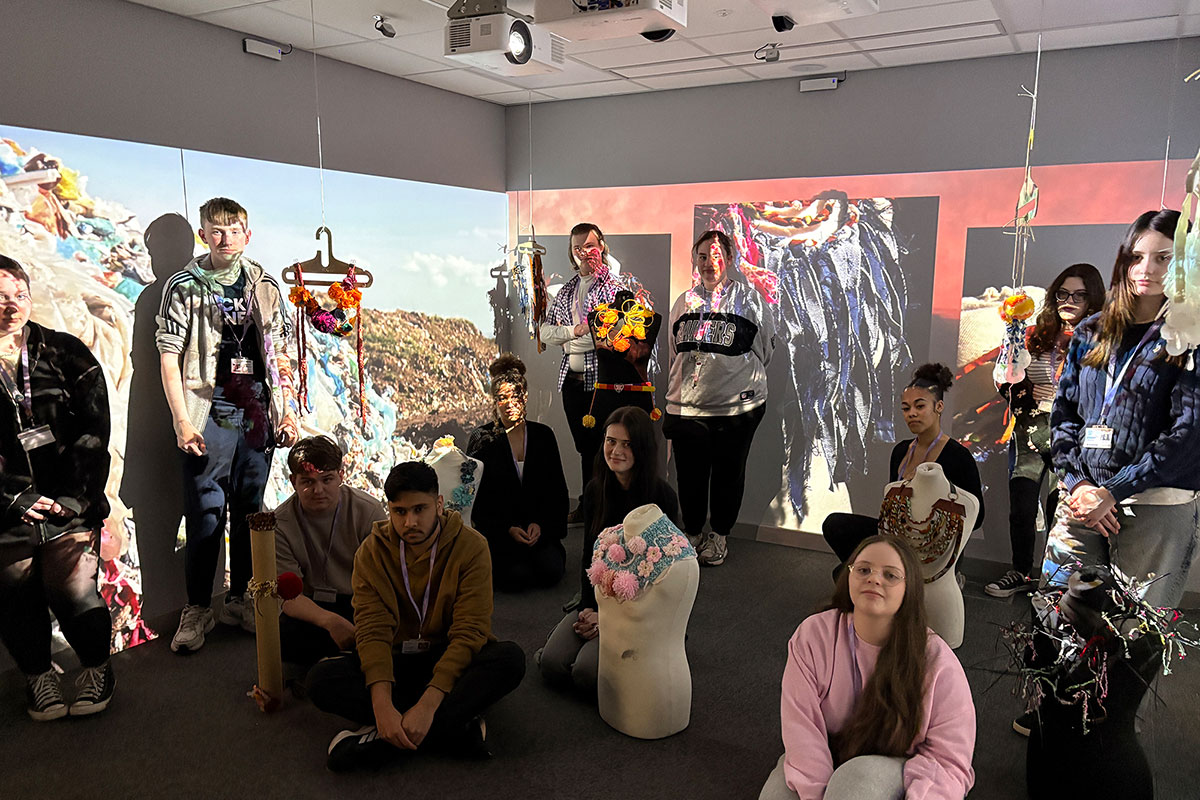STEM Day 2023: Inspiring young talent, promoting diversity and upskilling

A mix of experts in the technology industry explore the importance of inspiring the leaders of tomorrow and showcasing the UK’s STEM achievements for National STEM Day.
The role that science, technology, engineering and mathematics play in addressing some of the world’s critical issues mustn’t be downplayed. Each year, National STEM Day marks a reminder of the positive impact of STEM. STEM day is celebrated every year on November 8 to encourage kids to explore their interests in science, technology, engineering, and math careers. It’s also a chance to highlight the opportunities for people already working, including attracting and training young workers through registered apprenticeship programs, or upskilling opportunities for those looking for a change.
Here are insights from a mix of experts in the technology industry on the importance of inspiring the leaders of tomorrow and showcasing the UK’s STEM achievements:
Encouraging the youth to lean into STEM skills
All individuals and organisations are facing a multitude of challenges that require innovative solutions and a collaborative effort to address them effectively. Adrian Fieldhouse, managing director, government and transport at Sopra Steria UK, explains,
“STEM subjects provide the essential tools, knowledge, and methodologies needed to overcome many of today’s complex challenges. Whether addressing environmental concerns, advancing healthcare, or creating innovative technologies, STEM is at the forefront of progress, offering pathways to solutions which can improve the quality of life for individuals and wider society.”
He emphasises the need for businesses to “Inspire the younger generation to pursue a career in the industry.” He believes “Young people not only represent the future but are leading the way to change on societal issues like climate change. We must support them in developing the STEM skills necessary to have a notable impact on society – only then will the curious minds of today become the game changers of tomorrow.”
Highlighting the UK’s position as a tech superpower through education and training
Leaders within the technology industry rely on young talent to drive innovation and growth, yet Aaron Skonnard, co-founder and CEO at Pluralsight, notes,
“While Gen Z is known as the ‘tech-savvy’ generation who grew up with technology, they are not as tech-literate as we would expect. Only a third of Gen Z adults have enough resources to build the digital skills they need to thrive in the tech industry, and half agree their education has not adequately prepared them to enter the labour market.” He recommends: “Providing Gen Z with tools like online learning, coding boot camps and certification paths can be hugely beneficial in bridging the gap between traditional education and the workplace.”
Mark Gray, UK & Ireland country manager at Universal Robots, echoes this view, saying,
“The International Federation of Robotics estimates that robots will be used by more than 50% of production operators in a decade. These robots are already helping workers with dull, dirty and dangerous manual tasks that require a high degree of precision, such as in industries such as manufacturing and pharmaceuticals. To prepare the next generation of talent, we must bring STEM skills to the fore and bring robotics into mainstream education. Academies that blend online and in-person training can help students master STEM skills – making them more employable for a future that will require expertise in how machines are programmed.”
Ben Dilts, CTO & co-founder at Lucid, agrees on the need to upskill individuals, and adds,
“Even non-technical workers should understand the basics of technology and how to make the most of it. One of the most common misconceptions is that careers in the industry are only attainable for highly technical candidates. The reality is that the vast majority of tech companies need great people in marketing, sales, human resources, and operations with an understanding of the technology they produce. So, regardless of your background or current digital aptitude, taking the time to upskill in technology can open new paths for your career.”
Diversity and inclusion to reflect society and bring a range of perspectives
STEM Day is also a good occasion to remember the importance of addressing gender imbalance in the industry. According to Clare Loveridge, vice president and general manager EMEA at Arctic Wolf:
“The industry needs to start with increasing the number of female role models in schools and the workplace. Then, make a conscious effort to recruit employees from a diverse range of backgrounds, and publicly commit to empowering women as an organisation. This will allow leaders to attract a wider range of talent, perspectives and ways of thinking, helping to inform the development of highly innovative solutions for the challenges facing businesses today.”
Likewise, Alex Laurie, SVP global sales engineering at Ping Identity, states,
“To foster greater gender diversity, especially in cybersecurity, organisations must take proactive steps. This includes providing training to eliminate unconscious biases from the recruitment process, establishing partnerships with educational institutions to identify and nurture talent early on, and cultivating an inclusive work environment where everyone feels welcome at the table.” He is a firm believer that, “the true strength of a diverse workforce lies in its capacity for innovation. The fresh insights and creative problem-solving abilities that individuals from various backgrounds bring to the table are immeasurable assets.”
AI can help address the world’s biggest challenges
Celebrating STEM involves reminding people that AI is a powerful tool for solving major problems. David Higgins, senior director, field technology office at CyberArk, explores burnout and explains how AI can be part of the solution, “Cybersecurity practitioners are struggling with stress and overwork, according to 2023 research from CyberArk. Over half (59%) of security professionals revealed that burnout impacted their ability to do their job effectively, even as the volume of cyberattacks continues to escalate and cause damage. Using AI and technology tools can boost proactive defences and also alleviate ‘low level’ workloads – like automating threat detection and responses. AI and automation can mean practitioners are better able to focus on more meaningful, higher-level tasks.”
But AI requires the right skills and expertise. John Kelleher, VP UK&I at UiPath, explains,
“AI and automation are rapidly changing what is possible, fundamentally altering how work is performed and the skills necessary for the future. Skills required to work alongside AI will become the standard, and the ability to perform repetitive tasks will become less needed as automation advances.”
Rohit Gupta, managing director UK&I at Cognizant, also recognises the benefits of AI:
“Soon enough AI’s unprecedented problem-solving power will enable us to find solutions to problems much faster than we are used to. As a result, humans will spend more time identifying new use cases and unique applications of the technology, shifting focus from problem solving to problem finding, and this will become one of the most coveted skills.”
“Successful problem finding will require a wide variety of perspectives and therefore a very diverse workforce – in terms of cognitive diversity but also in terms of education as well as social background. Furthermore, it demands thinking that combines technological, creative and social capabilities, so what we currently consider non-STEM and humanities skills will become as important as traditional STEM skills to make the most of the technology.”
Teaching people the most in-demand STEM skills from a young age will help foster innovation in the UK, and National STEM Day is a great reminder of the importance of investing in young talent. Furthermore, enhancing diversity and fostering inclusion in STEM is crucial to promoting a wide range of viewpoints and fully harnessing cutting-edge technologies. This will enable businesses to leverage technologies like AI to address complex challenges, pave the way for a better future and position the UK as a tech and science superpower.











Responses